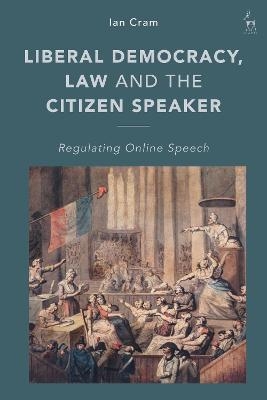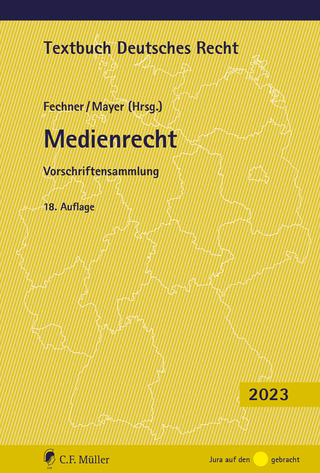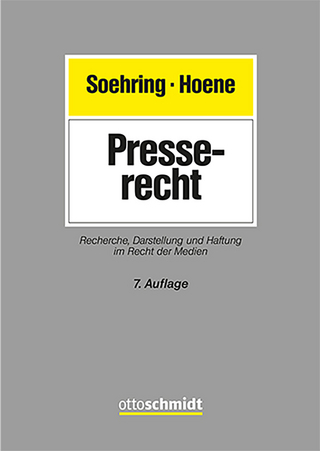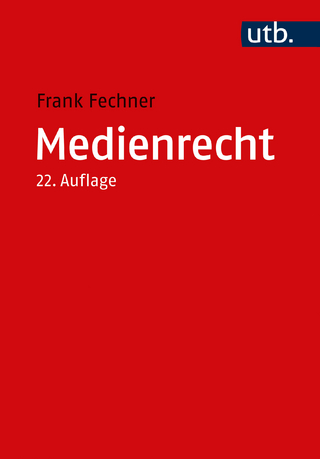
Liberal Democracy, Law and the Citizen Speaker
Hart Publishing (Verlag)
978-1-5099-4582-5 (ISBN)
In the digital world, anyone with access to the internet can be a speaker. Speech on public platforms has become democratised. At the same time, aspects of online speech are plainly problematic. Concerns exist about disinformation, ‘fake news’, ‘deep fakes’, ‘weaponised speech’ and ‘trolls’. Offensive speech and the polarising effects of robustly expressed political opinion are also troublesome. These assorted downsides of democratised speech are said to undermine the integrity of democratic processes and institutions. Public debate is distorted and coarsened and the electorate are misled. How ought the liberal democratic state respond to these challenges?
The discussion is intended to be read by academics and researchers with interests in democratic theory, digital communications and freedom of expression. It offers a stimulating and distinctive contribution to debates about online speech.
Ian Cram is Professor of Comparative Constitutional Law at Leeds University, UK.
1. Damaging Democracy? ‘Fake News’ and Moral Panics
Introduction
Issues of Principle – How Open Should the Channels of Political Communication be in a Liberal Democracy?
Tensions between Liberalism and Democracy
Popular Sovereignty in Liberal Constitutionalist Thinking
The Popular Sovereignty Challenge to Liberal Constitutionalism and Two Anxieties
Mapping Liberalism’s Ochlophobia – Current Restrictions on Freedom of Political Expression and a Republican Argument for Keeping the Channels of Political Change Open
2. Closing Off the Agon: Legal Norms, Deliberative Democracy and ‘Improved’ European Public Discourse
Introduction
The Liberal and the Democratic Polity
Privileging ‘Responsible’ Media – The Council of Europe’s Narrowed Conception of Political Pluralism
Threats to Political Pluralism from Liberal Elitist, Deliberative (Civic Republican), Epistemic Accounts of Democracy
Containing Majoritarian Passions – Pettit’s Aristocratic Republic of Reason and Critics
Conclusion – Ongoing Ineliminable Conflict: Truly Plural, Participatory Politics
3. Enlightenment Rationality vs Machiavellian Pluralism
Introduction
Enlightenment Roots of Deliberative Democracy and Some Counter-Enlightenment Objections
Public Reason and the Reasonable Citizen in Deliberative Democracy Scholarship
Conclusion
4. Populism and Ochlophobia: The Denouncements of Popular Participation in Liberal Democracy
Introduction
Anti-populist Themes in Mainstream Culture and Politics
Populism in Political Theory – A Response to Modern Representative Democracy and Redemptive Possibilities
Defending Oligarchical Rule Down the Ages – From Thucydides
and Plato via Madison and Tocqueville to the Twentieth-century Critics of Mass Culture
Denying Isonomia Today – Ochlophobia in Liberal and Republican Political Theory
Countering Ochlophobia – Popular (Arendtian) Participation and the Value of Roman Discord
Conclusion
5. Popular Participation and Political Dissent in Post-Revolutionary America: A Case Study of the Democratic Republicans
Introduction
Federalist and Patrician Republican Accounts of the Political Citizen
Arendt, Human Action and the Mediated (Oligarchic) Political Life – The Failure of the US Founders to Preserve the Revolutionary Spirit
Jefferson’s Ward-republic: Preserving the Revolutionary Spirit
The Counter-Publics of Democratic Republican Clubs
Conclusion
6. Official and Corporate Gatekeeping of Online Expression with Special Reference to False Statements on Public Affairs
Introduction
Protecting False Statements in Political Discourse – Some Principled Arguments
The Long Reach of UK Criminal Law into Online Political Discourse and Selected Comparisons Across Western Liberal Democracies
State Regulation of Contentious Expression – OFCOM and the Coronavirus Disinformation Unit
The State as a Producer of False Statements
Conclusion
7. Restoring the Agon: Re-opening the Channels of Political Change
Introduction – Swimming against the Liberal Tide
Dealing with the Problem of the ‘Ins’ and the Role of Plural Political Expression in Preserving Open and Fractious Republican Liberty
Common Carriers Not Editors – Public Forums and Banning Viewpoint Discrimination by Social Media Platforms
Final Thoughts: The Threat to Self-government
| Erscheinungsdatum | 11.08.2022 |
|---|---|
| Verlagsort | Oxford |
| Sprache | englisch |
| Maße | 156 x 234 mm |
| Themenwelt | Recht / Steuern ► EU / Internationales Recht |
| Recht / Steuern ► Öffentliches Recht | |
| Recht / Steuern ► Privatrecht / Bürgerliches Recht ► Medienrecht | |
| ISBN-10 | 1-5099-4582-2 / 1509945822 |
| ISBN-13 | 978-1-5099-4582-5 / 9781509945825 |
| Zustand | Neuware |
| Haben Sie eine Frage zum Produkt? |
aus dem Bereich


